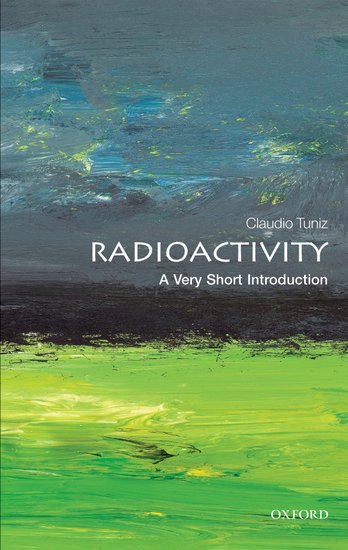Home >
A Very Short Introduction >
The Antarctic (Physics)
A Very Short Introduction | Physics
The Antarctic
ISBN: 9780199692422
Series: A Very Short Introduction
The Antarctic (Physics)
A Very Short Introduction The Antarctic (Physics) Media > Books > Non-Fiction > Education Books Expect Delays of Up to 4 Weeks| Order Below |
ISBN
9780199692422 (10-digit ISBN: 0199692424)
- Description
- Key Features
- Series Description
- Table of Contents
- Explores the scientific, historical, cultural, and political significance of one of the world's most remote regions, providing the background to the physical geography of the continent
- Considers the challenges and pressures posed by a variety of issues, including tourism, fishing, science, environmental protection, and territorial sovreignty
- Highlights the exploratory and scientific achievements of the region
- Considers the issues surrounding borders and territories, including the Antarctic Treaty System
- Looks at the cultural significance of the continent
The Antarctic is one the most hostile natural environments in the world. It is an extraordinary physical space, which changes significantly in shape and size with the passing of the seasons. Politically, it is unique as it contains one of the few areas of continental space not claimed by any nation-state. Scientifically, the continental ice sheet has provided us with vital evidence about the Earth's past climate. In this Very Short Introduction, Klaus Dodds provides a modern account of Antarctica, highlighting the main issues facing the continent today. Looking at how the Antarctic has been explored and represented in the last hundred years, Dodds considers the main exploratory and scientific achievements of the region. He explains how processes such as globalization mean that the Antarctic is increasingly involved in a wider circuit of ideas, goods, people, trade, and governance - all of which have an impact on the future of the region.
Reading Guide
Oxford's Very Short Introductions series offers concise and original introductions to a wide range of subjects--from Islam to Sociology, Politics to Classics, Literary Theory to History, and Archaeology to the Bible.
Not simply a textbook of definitions, each volume in this series provides trenchant and provocative--yet always balanced and complete--discussions of the central issues in a given discipline or field. Every Very Short Introduction gives a readable evolution of the subject in question, demonstrating how the subject has developed and how it has influenced society. Eventually, the series will encompass every major academic discipline, offering all students an accessible and abundant reference library.
Whatever the area of study that one deems important or appealing, whatever the topic that fascinates the general reader, the Very Short Introductions series has a handy and affordable guide that will likely prove indispensable.
Please note: As this series is not ELT material, these titles are not subject to discount.
Acknowledgements
1: Defining the Antarctic
2: Discovering the Antarctic
3: Claiming and negotiating the Antarctic
4: Governing the Antarctic
5: Doing Antarctic science
6: Exploiting and protecting the Antarctic
Further reading
Index
The Antarctic is one the most hostile natural environments in the world. It is an extraordinary physical space, which changes significantly in shape and size with the passing of the seasons. Politically, it is unique as it contains one of the few areas of continental space not claimed by any nation-state. Scientifically, the continental ice sheet has provided us with vital evidence about the Earth's past climate. In this Very Short Introduction, Klaus Dodds provides a modern account of Antarctica, highlighting the main issues facing the continent today. Looking at how the Antarctic has been explored and represented in the last hundred years, Dodds considers the main exploratory and scientific achievements of the region. He explains how processes such as globalization mean that the Antarctic is increasingly involved in a wider circuit of ideas, goods, people, trade, and governance - all of which have an impact on the future of the region.
Reading Guide
Key Features
- Explores the scientific, historical, cultural, and political significance of one of the world's most remote regions, providing the background to the physical geography of the continent
- Considers the challenges and pressures posed by a variety of issues, including tourism, fishing, science, environmental protection, and territorial sovreignty
- Highlights the exploratory and scientific achievements of the region
- Considers the issues surrounding borders and territories, including the Antarctic Treaty System
- Looks at the cultural significance of the continent
Series Description
Oxford's Very Short Introductions series offers concise and original introductions to a wide range of subjects--from Islam to Sociology, Politics to Classics, Literary Theory to History, and Archaeology to the Bible.
Not simply a textbook of definitions, each volume in this series provides trenchant and provocative--yet always balanced and complete--discussions of the central issues in a given discipline or field. Every Very Short Introduction gives a readable evolution of the subject in question, demonstrating how the subject has developed and how it has influenced society. Eventually, the series will encompass every major academic discipline, offering all students an accessible and abundant reference library.
Whatever the area of study that one deems important or appealing, whatever the topic that fascinates the general reader, the Very Short Introductions series has a handy and affordable guide that will likely prove indispensable.
Please note: As this series is not ELT material, these titles are not subject to discount.
EASY ORDER FORM
PRICES LISTED INCLUDE CONSUMPTION TAX
Price Before Tax:
¥1,790


